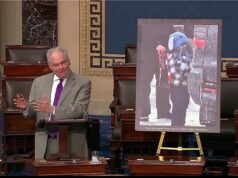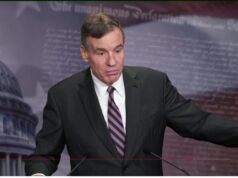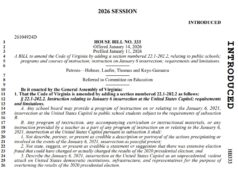Surely you have noticed that the new crisis du jour in the mass media is Foreclosures. It looks more and more as though we will not be able to re-start America’s economy successfully until we resolve the foreclosure crisis. The early problem of defaults on the so-called sub-prime mortgages was merely a foothill leading to the Himalayas of today’s foreclosures, where banks and primary investors stand to lose billions upon billions, one hundred percent of each of many of the loans they have made on residential real estate in the United States, and literally thousands upon thousands of otherwise normal middle class families are being put out on the street. Other homeowners, faced with rising mortgage payments on a home whose value has sunk well below the amount of their mortgage, (so they are “underwater”) are taking a hike, walking away, performing a “strategic default.” What if there is a way for the banks and investors to “lose” a far smaller percentage, say no more than 30 to 60 percent, of the loan amounts, and at the same time keep those families in their homes—- without a new bailout or fancy government program? There is.
We need legislation which, through carrot and stick provisions, compels lenders to write-down (or “cram-down”) the mortgage balance on a home to below current market value, and then re-set the interest rate at today’s lower rates. Consider that, by foreclosing, lenders write-off 100 percent of the loan, and, when they make a new loan it is at today’s low rates anyway, but in the mean time they have kicked the former borrower out of his/her home, and spent several thousand dollars to process the foreclosure, maintain the property, and re-sell it at a much lower market value than it had originally, with a new mortgage at today’s low interest rates—- so they are already “eating” a hundred percent loss. Would it not make sense to take a smaller loss, avoid the hassle of foreclosure, and keep people in their homes? Well….
What about Rule of Law? Those defaulting owners of the houses signed a contract, they have a legal and moral obligation to pay back what they borrowed. “They should never have bought a home they could not afford,” “they are deadbeats,” “they do not deserve to be helped”—– or so claim the self- righteous, among whom we find the banks. The irony is that the banks themselves ignored their own legal (and moral) obligations. We have learned that the bankers who, with ruthless haste, originally created, marketed, and sold these now-bad loans, ignored paperwork and consumer protections, basically, committing fraud of their own, and are now hoist by their own petard, as it were, see The Washington Post for 16 October.
So, why does Rule of Law only apply to the little guy, and not to the banks? Ha, don’t be naive. Two times, I have suggested cram-down legislation, once to the chief lobbyist for the National Association of Realtors, and once to a prominent local Congressman. Both times, the answer was, basically: “The banks won’t stand for it.” Think about that for a moment. One is forced to conclude that the financial-corporate sector of our economy, the mega- financial institutions, actually control Congress and, in essence, run the country. I ask you, then, why bother to have elections, if the financial and corporate oligarchy owns us anyway? Clearly, there is another side to this mess, which goes far beyond the current middle class agony, beyond even the tunnel vision of Free Market banks and politicians.
This crisis comes as no surprise to many professionals in the real estate industry, nor to many non-Free Market economists. Those with independence and gumption warned about the risks inherent in the residential housing boom, especially with the advent of exotic new types of mortgages, compounded not so much by securitization as by the byzantine derivatives market. The masters of the universe on Wall Street can whine “no one saw it coming,” but that is simply not true. When the blow-up and subsequent meltdown finally tore Wall Street apart, the middle class taxpayer was the financiers’ last resort—- they demanded and received a bailout. As this mortgage foreclosure mess festers, its economic and social costs grow, and their effects will roll downstream into the future, transforming America, not always in ways that will strengthen our society or affirm our fragile experiment in self-government.
We must protect the future of our experiment by short-circuiting the current enormous transfer of wealth, as well as the social tragedy of deliberately creating a “rootless proletariat” out of formerly committed homeowners. Since 1980 a relentless attack on the middle class has concentrated an ever-greater share of national wealth on the hands of a thin sliver of an increasingly aggressive elite; it is reaching its natural culmination in the foreclosure crisis.
Telling the perpetrators of this class warfare to “fix” the mess they have created is absurd. One way or another, the actual people, that is, real people who vote, must compel the arrogant banks to our will, not the other way around. This not the first time I’ve written about this earlier here, and now Ezra Klein, writing in The Washington Post has also suggested cram-downs, along with some other suggestions such as forced mediation. The point is that, while some undeserving individuals will benefit from cram-downs, and some will no doubt game the system, the cost-benefit analysis of such an emergency policy far outweighs the fact that some morally repulsive people will be helped. The rain in farming territory, remember, falls on undeserving and deserving alike, and God does not therefore stop the rain.
I recently saw the movie “Secretariat,” a Hollywood version of the great race horse’s career, much of which I remembered from the 1970’s, but one thing had slipped my mind. I remembered how he always came from behind, of course, with a final champion’s burst at the end of a race that left his otherwise worthy competitors short of victory. What I had forgot was how he won the Belmont, the extra-long third race of the Triple Crown: he pulled ahead and, over time, lengthened his lead until he was running the race by himself, so far ahead he won by over 20 lengths, and his rivals had not even made the final turn when Secretariat crossed the finish line. I believe that is America.
This is the race of our lifetime, we have to do what is required to save our experiment in self-government, to take back control of our system. One of the most effective ways we can do so is to stop the tsunami of foreclosures (not all foreclosures are necessarily undeserved, but this is out of hand), reining in the arrogance of corporate and individual wealth—- and cease confusing the Free Market, profit-centric ideology with the Ten Commandments, that is, with the Word of the Lord. The first step is forcing cram-downs on the banks. From thus pulling ahead of corporate power, the rest of the race should belong to us, the citizens, by 20 lengths or more. While it is up to our political leadership to remind Americans we are not past our peak, on the downward path into the dustbin of history, but that America is like Secretariat because we have stamina as well as speed, it is really up to us, the citizens, to force our timid Congress and our compromise-seeking President to assert civilian-citizen control, starting here, starting now, with the foreclosure mania.












